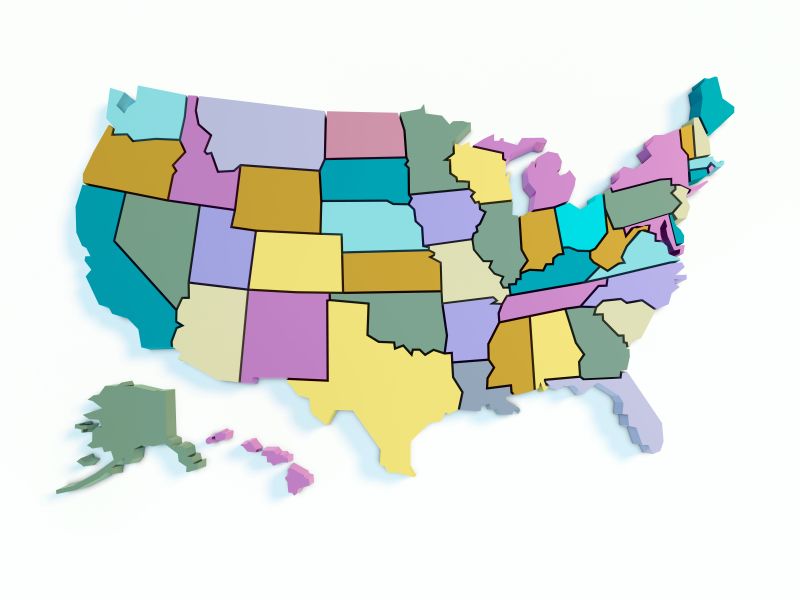Is Your State a Hotspot for Obesity-Linked Cancers?

THURSDAY, Dec. 27, 2018 (HealthDay News) -- What state you call home may have a great deal to do with your chances of developing an obesity-related cancer, a new report suggests.
A nearly twofold difference exists between U.S. states with the highest and lowest proportion of obesity-related cancers, American Cancer Society researchers have found.
The highest is in the District of Columbia, at 8 percent, and the lowest in Hawaii, at nearly 6 percent. Being obese or overweight has been tied to 13 types of cancer.
"The proportion of cancers attributable to [excess body weight] varies among states, but [excess body weight] accounts for at least one in 17 of all incident cancers in each state," the researchers reported.
For the study, a team led by Dr. Farhad Islami calculated the proportion of cancer among obese or overweight people. Islami is the cancer society's scientific director of surveillance research.
Participants in the study were aged 30 and older between 2011 and 2015, and lived in all 50 states plus the District of Columbia.
Among men, the investigators found a range of cancer attributable to excess weight from nearly 4 percent in Montana to 6 percent in Texas.
For women, the risk of cancers linked to excess weight was about twice as high as in men. It ranged from 7 percent in Hawaii to 11 percent in the District of Columbia, the findings showed.
States in the South and Midwest had the largest proportion of people with weight-related cancers, as well as Alaska and the District of Columbia, the researchers found.
Cancers linked to weight were at different levels across the country. For example, cases of endometrial cancer ranged from about 37 percent in Hawaii to 55 percent in Mississippi, and reached 50 percent or more in 19 states.
"Broad implementation of known community- and individual-level interventions is needed to reduce access to and marketing of unhealthy foods (e.g., through a tax on sugary drinks) and to promote and increase access to healthy foods and physical activity, as well as preventive care," Islami's team concluded in a cancer society news release.
The report was published online Dec. 27 in the journal JAMA Oncology.
More information
For more on weight and cancer, visit the American Cancer Society.

The news stories provided in Health News and our Health-E News Newsletter are a service of the nationally syndicated HealthDay® news and information company. Stories refer to national trends and breaking health news, and are not necessarily indicative of or always supported by our facility and providers. This information is provided for informational and educational purposes only, and is not intended to be a substitute for medical advice, diagnosis, or treatment.

